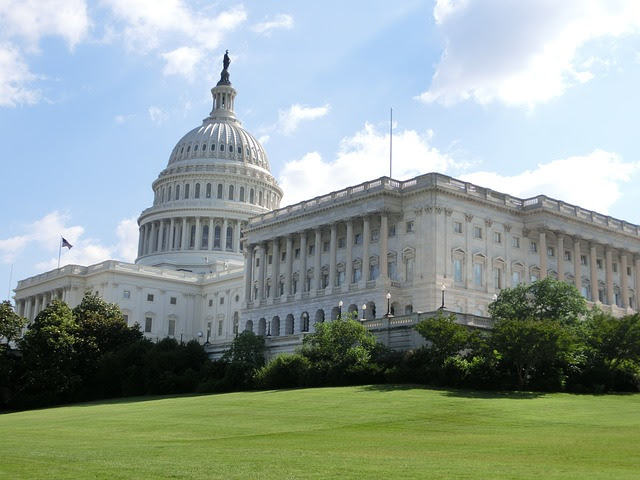FABBS News Highlights: May 9, 2019
Thursday, May 9, 2019
(0 Comments)
Posted by: Psychonomic Society
|
 Q
& A with William T. Riley, PhD Q
& A with William T. Riley, PhD
William T. Riley (Bill)is the Director of the Office of Behavioral and Social Sciences Research (OBSSR) at the National Institutes of Health (NIH). During his 13 years at the NIH, he also served
at the National Institute of Mental Health (NIMH), the National Heart, Lung, and Blood Institute (NHLBI), and the National Cancer Institute (NCI). Dr. Riley’s research interests include behavioral assessment, technology-based interventions for health risk
factors, and the application of engineering and computer science methodologies to the behavioral sciences.
Read more about
OBSSR and how you can contribute »
|
|
 Research
Is Off to a Good Start in House Labor-HHS Appropriations Bill Research
Is Off to a Good Start in House Labor-HHS Appropriations Bill
As expected, the House Appropriations Committee is moving quickly to mark up appropriations bills. Committee leadership, Chairwoman Nita Lowey (D-NY), and Ranking Member Kay Granger (R-TX), have said they are determined to work
together to avoid another government shutdown this fall. Lowey and Granger helped end the longest government shutdown in history, which they inherited after a spending standoff last year over Trump’s border wall.
Read
more »
|
|
 Our
Sciences Represented and Honored in Washington DC Our
Sciences Represented and Honored in Washington DC
In April, several high-profile events on Capitol Hill and at the National Academy of Sciences brought attention to important scientific contributions of FABBS scientists.
On April 30th, two poster exhibitions on Capitol Hill highlighted a range of scientists, including our members. FABBS was pleased to be represented by
Nicholas Turk-Browne, PhD, Yale University, at the 25th Annual Coalition for National Science Funding’s (CNSF) Exhibition and Reception, “Building the Future: Federal Investments in Science, Engineering, and Education”. Dr. Turk-Browne presented
his NSF-funded research “Using Deep Neural Networks to Understand the Human Mind and Brain”. Among Turk-Browne's professional memberships are the
American Psychological Association, the Psychonomic Society, and the Vision Sciences Society.
Read more
»
|
|
EARLY CAREER SPOTLIGHT: Rebecca M. Calisi, PhD, Society of Behavioral Neuroendocrinology
|
|
 Studying
the Bird Brains of Parents Studying
the Bird Brains of Parents
Humans and pigeons have a lot more in common than a love of park benches and French fries—so much that
Rebecca M. Calisi, Ph.D. has dedicated her career to studying bird brains.
She’s in a crowded field! While Calisi is focused on pigeons, other scientists nationwide are studying the brains of a host of different birds to better understand why we humans behave the way we do—and why we sometimes behave
in ways we’re not supposed to.
Read more
»
|
|
|
Apply and Nominate
Attend
- "Neuroethics:
The Responsbile Use of Advances in Brain Science" Webinar (May 23)
- "Harnessing
Big Data with the Help of the Cognitive Sciences" APS Conference (May 24, Washington, DC)
- Board on Behavioral,
Cognitive, and Sensory Sciences (June 5-6, Washington, DC)
- 12th NIH Matilda White Riley Behavioral
and Social Sciences Honors (June 6, Bethesda, MD)
- Behavioral Science in Policy
& Application (BSPA) 2019 Annual Conference (June 14, New York, NY)
- APA Technology, Mind, and Society Conference (Oct
3-5, Washington, DC)
Comment
Funding
Read
Share
|
|
UPCOMING FABBS MEMBER SOCIETY ANNUAL MEETINGS
|
|
FABBS News Highlights is a semi-monthly electronic newsletter published by the Federation of Associations in Behavioral and Brain Sciences with the goals of keeping scientists updated on funding and policy issues affecting the
sciences of mind, brain and behavior; recognizing the research contributions of leading scientists; and sharing research findings to inform policies and programs.
Editor: Juliane Baron
Contributors: Juliane Baron, Diana Liao, Jennifer Anderson, Bill Riley
|
|
FABBS Mission
FABBS promotes human potential and well-being by advancing the sciences of mind, brain, and behavior; promoting
scientific research and training in these fields; educating the public about the contributions of research to the health and well-being of individuals and society;
fostering communication among scientists; and recognizing scientists who have made significant contributions to building knowledge.
|
|
|